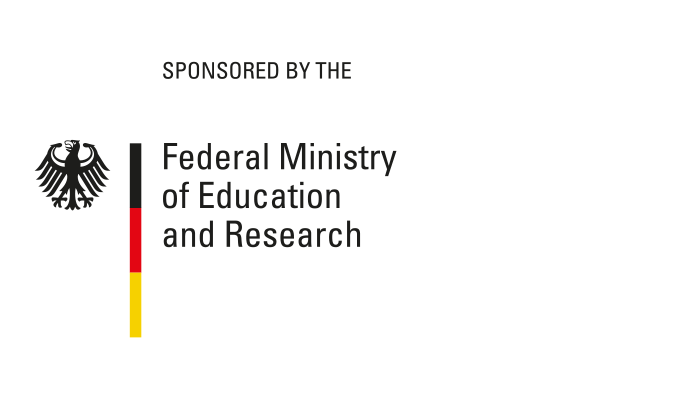Research on societal crises
Connecting empirical social science research and improving data infrastructures for social crises
Project "Vulnerabilty, preparedness, and resilience in crises"
Through the project “Vulnerability, preparedness, and resilience in crises – data infrastructures for the research of societal crisis phenomena” and an associated working group, the German Data Forum (RatSWD) is also contributing to the improvement of data infrastructures for social crises in its 8th appointment period (2023–2026).
The aim is to develop an infrastructure with which the vulnerability, preparedness, and resilience of individuals and social structures in crises, disasters, and threat situations can be empirically investigated in more detail from a social science perspective in the future. To this end, an information platform on crisis-relevant data will be set up, a collection of corresponding survey instruments will be created and a survey module will be developed for inclusion in ongoing surveys. The project is part of KonsortSWD and is based at the Freie Universität Berlin and the WZB Berlin Social Science Center. It is also supported by a heterogeneous group of experts from academia and practice.
Best_FDM Project
As part of the project “Better results through interoperability and standardised research data management: connecting empirical social science research in societal crises (Best_FDM)”, the RatSWD supported empirical research on and in societal crises with a working group in its 7th appointment period (2020-2023). The starting point was the outbreak of the Corona pandemic, but the recommendations for action apply to societal crises in general. The aim of the working group was to initiate networking and interoperability of social, behavioural, educational, and economic research projects across methodological boundaries and thus to support the quality assurance of research data and the change in data culture even in small ad hoc research projects.
Studies on societal crises
Corona pandemic
Since the spring of 2020, a number of studies and projects have emerged that empirically record the impact of the Corona pandemic and its response on society. They range from snapshots in surveys with self-selected samples, representative surveys and Corona diaries to inclusion in long-term studies. On its website, the RatSWD collected information on the individual projects. This has resulted in an overview with more than 300 entries, which systematically records the studies and makes them searchable by means of a filter guide. Researchers and the interested public can thus gain an overview of social science research on the Corona pandemic and seek mutual exchange.
Note: With the completion of the Best_FDM project in November 2023, this collection will no longer be continued and existing entries will no longer be updated.
The social impact of the Ukraine war
The war in Ukraine has far-reaching political, economic, and social consequences for Germany as well and is thus of enormous relevance for the empirical social sciences. The RatSWD compiled an initial overview of current projects on the impact of the war in Ukraine on (German) society as well as migration and refugee studies in this context. The aim was to provide researchers with an overview of current initiatives and to promote mutual networking.
Note: With the completion of the Best_FDM project in November 2023, this collection will no longer be continued and existing entries will no longer be updated.
To the Ukraine studies [only in german]
What support do researchers need? Recommendations for action and needs
Creation of scientific surveys
Particularly in the context of the Corona pandemic, scientific surveys form an important research data infrastructure for basic research and for application-oriented analyses in the social, behavioural and economic sciences. With online surveys and the opening for external questions, they flexibly address current developments and research needs. Their use of data has also evolved in various ways: Secondary use has increased across disciplines and survey data is increasingly enriched by linking it with data from other sources, such as administrative sources. The RatSWD continuously accompanies and supports this dynamic field: among other things, it has published recommendations for the sustainable further development of the survey landscape.
Sustainable research data management
In order to be able to sustainably secure the numerous new research data in the context of the Corona pandemic and, if necessary, also make them available for further analyses, various precautions and measures must be taken into account as early as the application, planning and implementation stages of the research projects. The requirements for the content of data management plans in the individual disciplines and at research funding institutions have been very heterogeneous up to now and differ in particular in the expectation of the level of detail of the respective plans. The RatSWD has therefore developed guidance for sustainable research data management and data management plans in the social, behavioural and economic sciences.
Data collection with new information technology
In addition to classic (online) surveys, new information technology such as smartphone apps or electronic diaries are increasingly being used for data collection during the Corona pandemic. This allows data to be collected in real time, for example on locations, movements or individual media use in everyday Corona life. The quality of sensor-based data should be guaranteed, research ethics and data protection standards should be adhered to, and quality-assuring data management should be developed before data collection. The RatSWD supports researchers in these challenges with its current handout.
Contactless data access via Remote Access
In Germany, however, formally anonymised microdata from the official statistics of the federal and state governments and the social insurance institutions – the central basis of numerous empirical research projects – can so far only be used in a location-bound manner at guest researchers’ workplaces or via remote execution (i.e. usually without viewing and browsing data or results on the screen). Remote access to individual data from the researcher’s workplace makes research processes more flexible and independent of business trips. In the current Corona pandemic, the importance of this data access is becoming abundantly clear, as guest scientists’ workplaces are hardly usable at present. Models already exist at a number of European statistical offices and German research institutions. The RatSWD therefore recommends developing and testing a remote access scenario in a pilot project.
Analysis: The impact of the Corona pandemic on personal well-being
A Comparison of Empirical Studies in the Open Research Knowledge Graph
The RatSWD and the Best_FDM project promote the networking of researchers and support technical innovations in science communication and research data management.
The Open Research Knowledge Graph (ORKG) is a project of the German National Library of Science and Technology (TIB). The aim of the online tool is to provide an alternative to static PDF documents through a dynamic knowledge graph and to present research articles in a structured and comparable way. Different research ideas, approaches, methods and results are extracted from the individual studies and the (meta-)data is listed in a machine-readable way. This is intended to provide researchers with easier access to the state of the art in a particular field.
As an example, Best_FDM used ORKG to compile a comparison of German and international studies that address the common research question of how the Corona pandemic affects personal well-being. In doing so, various (meta-)data were listed in a comparative manner, e.g. the population considered, survey period and region, identification method and – if available – effect sizes and control variables. The entry can serve as a starting point and inspiration for further use of ORKG, both for Corona-related research and for the social sciences in general.
Publications (only in German)
- RatSWD Output 4a (7)
Vernetzung sozialwissenschaftlicher Forschung in gesellschaftlichen Krisen
Koordinierungsinitiativen und Empfehlungen zur Datenharmonisierung - RatSWD Output 4b (7)
Standardfragenkatalog zur Erhebung soziodemographischer und krisenbezogener Variablen
Erstellt von der Arbeitsgruppe des RatSWD zur Vernetzung sozialwissenschaftlicher Forschung in gesellschaftlichen Krisen
RatSWD Working Group
Contact

RatSWD Office
Research Associate
